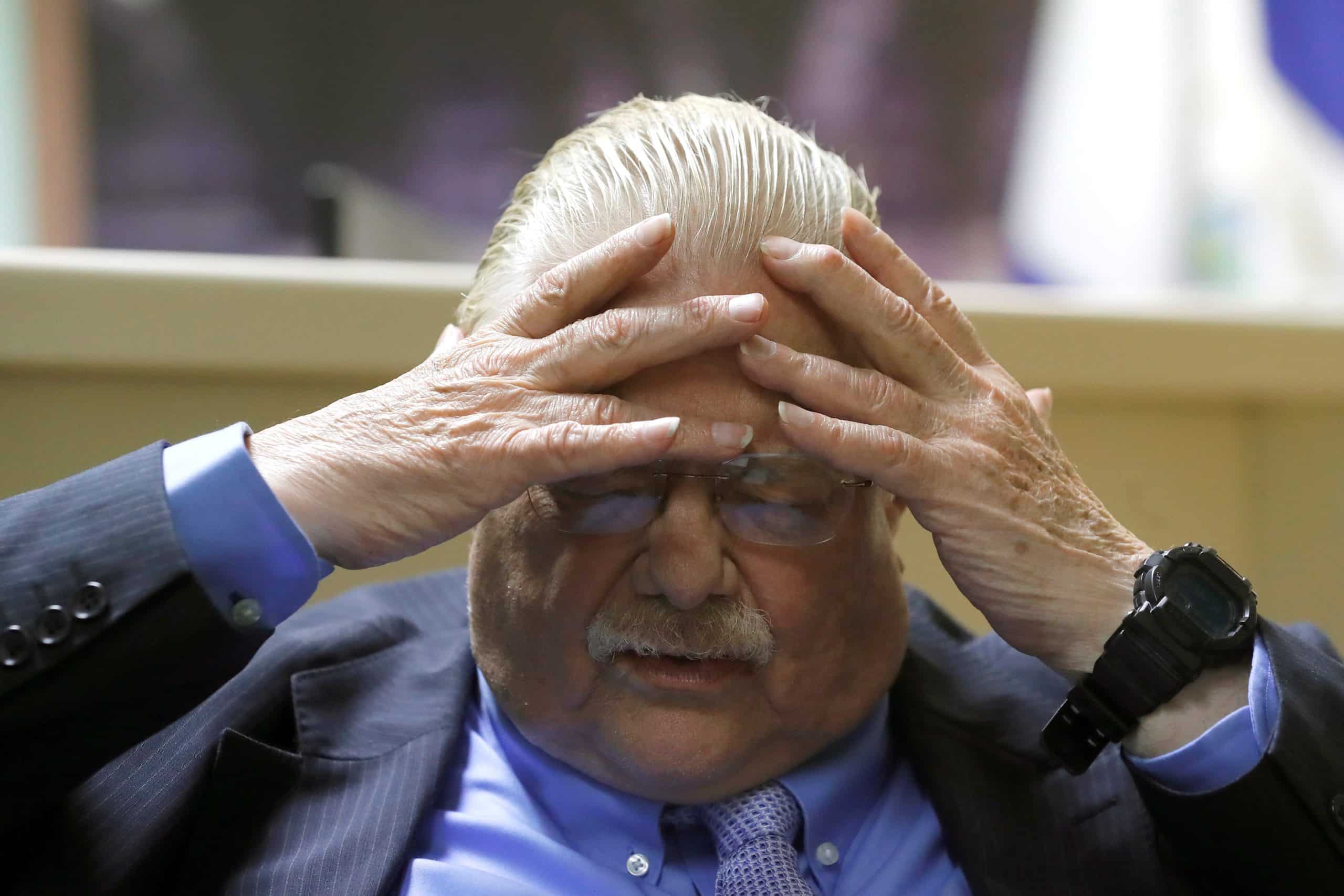The Tale of a Failed Revolutionary From UC Berkeley to the Battle Trenches of Nicaragua and Vice Presidency Under Ortega

By: Kaveh Basmenji
In the winter of 1979, Iran had its revolution. A few months before that, Nicaragua had one too. At that time, Paul Oquist was a young man brimming with a passion for equality and a fervent desire to uplift the people. He found his utopia in Nicaragua, where the Sandinista guerrillas were advancing step by step toward the capital, aiming to overthrow the long-standing Somoza dynasty. It was the era of flags, posters, Che Guevara T-shirts, and fiery slogans. Oquist left behind his comfortable American life, renounced his U.S. citizenship, and joined the Sandinistas in their fight.
A year later, his dream came true: the Sandinista revolution triumphed. As one famous novelist put it, “the air was infected with the disease of optimism.” The revolution was a bulldozer meant to destroy the palace of oppression and, with its rubble, fill the gap between the rich and the poor, the leeches and the laborers — liberty, equality, fraternity.
In 2010, I spent five days in Nicaragua making a documentary. I wandered the streets, spoke with everyday people, and interviewed politicians. The more I searched, the less I saw of liberty, equality, or fraternity. What I did see was misery, lament, and despair. I interviewed President Daniel Ortega and his senior advisers in foreign affairs, the economy, and tourism. (In the Sandinista government, there are no ministers — perhaps because the word “minister” reeks of aristocracy or imperialism. Cabinet members are instead called Ortega’s “senior advisers.”) Ortega received me in the cabinet room, where the walls were covered with bright floral murals reminiscent of the tropical jungles — and of Latin American magical realism novels. He wore an open-collar shirt and a light beige jacket — a familiar look in Iran, once dubbed the “Ahmadinejad jacket.”
His foreign affairs adviser translated between us. Ortega's tone struck me as limp — perhaps weary, even melancholic. The fervor of revolutionary rhetoric was gone. Beneath his words was a deep bitterness. He blamed the U.S. for his country’s troubles and claimed that capitalism was driving the planet to ruin.
To borrow from Sadegh Hedayat, he was “lament-farting,”. Ortega pinned all blame on the injustices of “Reagan the cowboy gunslinger,” despite the fact that Reagan had long departed the stage; Bush Sr., Clinton, Bush Jr. had come and gone, and Obama now sat in the White House. Yet the Sandinista tune hadn’t changed.
I heard the same refrain from every other official I met — a mix of selective truths and convenient excuses. Yes, the U.S. had wronged Nicaragua. But the U.S. inflicted far worse on Vietnam — it divided the country, killed tens of thousands, and scorched its land with napalm. Yet Vietnam rose from the ashes, stood tall and proud. Political freedom and human rights there are far from ideal, but the majority of its people have escaped poverty, and the once-devastated country now boasts dazzling economic growth.
Blaming foreign powers is a widespread affliction — a means to rationalize stagnation and historical underdevelopment. It overlooks the roles that local people and societies play in their own fates: Would the Spanish conquest of Latin America have been so effortless without the cooperation of some Inca tribes? Could the transatlantic slave trade have thrived without local African tribes engaging in slave trading themselves? After independence, how often did Latin American nations go to war with each other? As Hafez said: "I never complain of foreigners."
A footnote: During my interview with Ortega, his wife and their young, attractive daughter were present. The translator told me that Ortega’s daughter — presumably what we’d now call “genetically privileged” — was soon to take on a “major role” in the country's tourism sector. Apparently, this is what meritocracy looks like in some corners of the world.
Outside the presidential compound, the street billboards said more than a thousand slogans could. One enormous billboard featuring Ortega promised “more socialism” in the upcoming election. Like the omnipresent gaze of Atatürk in Turkish cities, Ortega’s face was plastered all over Managua. Yet just meters from each socialist billboard stood signs with far more permanence in people’s minds: McDonald’s and Pizza Hut logos, Exxon and Shell gas stations, Apple and LG stores, BMW and Mercedes dealerships — and many more Western brands.
Along one of the main boulevards, posh villas with cheerful colors and lush gardens sat just a few blocks from squalid shanties and filthy slums. In the chaotic traffic circle of Managua’s Plaza de la Revolución, horse-drawn carts, decrepit mopeds, and rickety wheelbarrows moved alongside the occasional new Toyota or Honda, circling a massive bronze statue of a guerrilla fighter holding a gun and a flag, gazing skyward. The weary, greasy-looking revolutionary seemed absurdly out of place beside the gleaming billboards of world capitalism. It was as if he, too, would’ve preferred a Big Mac and Coke — if he could afford it — and a siesta in the shade of magical realism, away from the suffocating stench of garbage, dog feces, and human waste.
When I met Ortega’s tourism adviser, I was bombarded with official figures and given glossy brochures and DVDs advertising Nicaragua’s natural beauty and leisure options — including five-star oceanfront resorts with golf courses, massage, and spa services. The real message, however, lay in those DVDs: advertisements for land and homes targeting wealthy Western buyers. The narrator, in polished East Coast American English, uttered the magic phrase for drawing investment: “Nicaragua is the best place in the world for North American retirees.” Retirees were encouraged to buy property under conditions far more favorable — and cheaper — than in Florida, America’s retirement haven.
At Managua’s main market, buses unloaded groups of American tourists. While reading Nicaragua’s foreign trade stats, Ortega’s words still rang in my ears. The data showed the U.S. as Nicaragua’s largest export market and primary source of tourism revenue — this from a country that once defiantly raised the banner of anti-Yankee revolution and still, in the hollow bluster of its leaders, pretends to dream of a socialist utopia.
The office of Ortega’s chief adviser was a vast, gray hall — no paintings, no decoration. Just a conference table, a desk with a computer in the corner, and a heavyset man in his seventies with gray hair, wearing gray shirt and trousers. The walls, furniture, even the floor were gray. The only non-gray thing I noticed were his bright blue eyes. He seemed to have dedicated both himself and his room to the "heroic, destitute masses" — leaving no space for anything else.
When I asked about the country’s economy, he appeared weary and possibly defeated. His answers came out like memos, staccato and lifeless — as if he were spitting out sunflower seed shells while drunk: “The president’s new plan to lift peasants out of extreme poverty,” and so on and so on. He didn’t seem to believe much of what he said.
His face looked familiar because he was well-known. I had read about him before my trip. Meeting him was one of my main goals — but it failed. He had nothing to share beyond official talking points. That gray-haired, blue-eyed man was Paul Oquist. He was born in 1943 in Oak Park, Illinois, studied political science at UC Berkeley, later taught in Chile and Colombia. When revolutionary fervor in Nicaragua surged, he left his comfortable life, gave up his U.S. citizenship, and joined the guerrillas. Now he was Ortega’s chief adviser, parroting his words as if they were divine revelation.
It was Oquist who later prevented Nicaragua from signing the Paris Climate Agreement. (I recalled Ortega’s words about capitalism and the planet’s destruction.) When the COVID-19 pandemic hit, Oquist blocked Nicaragua from declaring a state of emergency or imposing public health restrictions. In 2020, he defended the Ortega regime’s crackdown on opposition — comments that led the Trump administration to ban him from entering the U.S. A year later, he contracted COVID himself and died. Ortega and his wife Rosario issued a statement praising him for “serving all Nicaraguans with love, loyalty, commitment, and boundless courage.”
Presumably, hiding a deadly virus that ultimately claimed his own life was a sign of such “love and loyalty.”
As the English saying goes: The road to hell is paved with good intentions.

